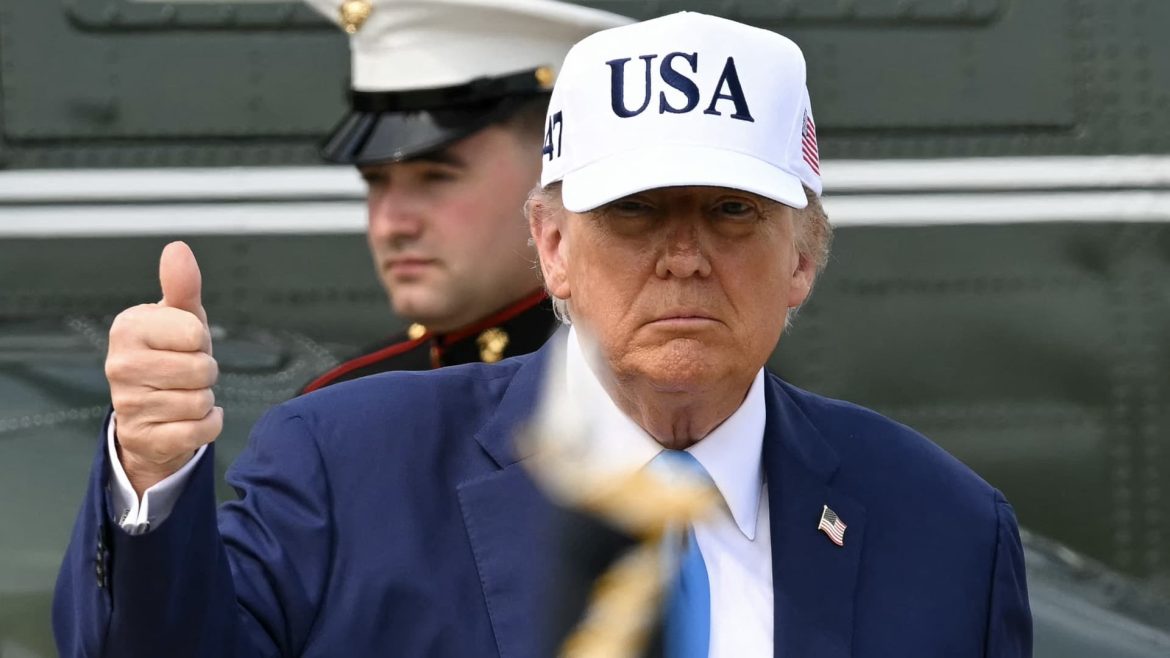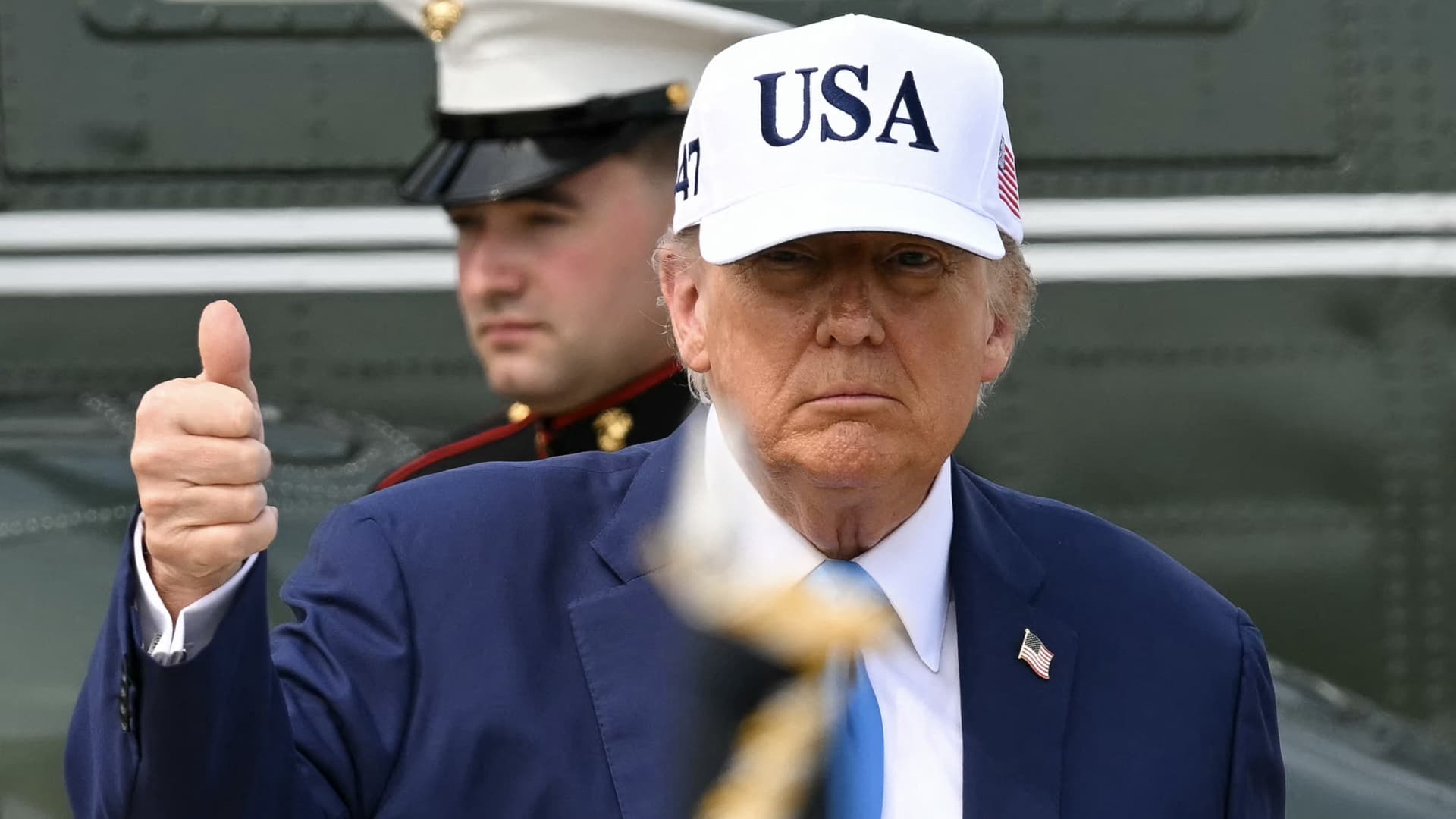Exploring the “Trump Accounts”: A Newborn Investment Initiative in Trump’s Tax Bill
In a strikingly branded financial move, the Republican Party, under former President Donald Trump’s influence, has introduced a contentious provision in their recent tax legislation often referred to as the “big, beautiful bill.” Central to this initiative is the creation of “Trump accounts,” or initially called “MAGA accounts,” designed to provide newborns with government-funded investment accounts seeded with $1,000 each. This policy targets children born between January 1, 2025, and January 1, 2029, aiming to instill early financial security and potentially reshape long-term wealth accumulation strategies in America.
—
The Core Proposal: What Are “Trump Accounts”?
Under the GOP’s legislative framework, every qualifying child would be automatically granted a new, tax-advantaged investment account at birth, funded initially by the government with a $1,000 deposit. These accounts bear resemblance to 401(k)-style plans but are designed specifically for children—setting a precedent for early financial planning and savings accumulation from infancy.
The accounts are intended to be opened either by the parents or by a federal agency like the Treasury, with investment management likely involving participation or oversight by appointed financial institutions or corporate partners. The framing presents “Trump accounts” not merely as a welfare supplement but as a pathway to wealth-building and enhancing future retirement landscapes.
—
Political Branding and Its Controversies
The explicit naming of these investments as “MAGA accounts” initially, and later rebranded to “Trump accounts,” underscores a political strategy to tie fiscal policy closely with the Trump brand and broader Republican loyalty. This branding has incited debate. Critics point to concerns about politicizing financial initiatives and potential divisiveness; supporters argue that the branding galvanizes a base while promoting a bold, market-based approach to social welfare.
Despite the political friction, the core concept—providing children with a start toward financial independence—is gaining some bipartisan recognition as an innovative but nascent model.
—
Corporate Engagement: The Role of CEOs and Wall Street
An intriguing development is the engagement of major corporate leaders from companies like Uber, Dell, and Goldman Sachs, who have reportedly committed billions to investing in these “Trump accounts.” This collaborative involvement suggests a novel public-private partnership, where corporate capital could reinforce government-backed financial programs.
Wall Street’s investment community seems to generally favor the initiative, viewing it as a long-term catalyst for capital markets and as aligning with the broader retirement and savings ecosystem, which heavily includes 401(k)-like vehicles.
—
Economic and Social Implications
Advantages:
– Early Wealth Building: Starting financial investments from birth could help bridge generational wealth gaps and foster disciplined saving habits.
– Tax Advantages and Automatic Enrollment: The tax-preferred nature of the accounts and automatic opening mechanism could increase participation among demographics that traditionally under-save.
– Potential to Stimulate Economy: Long-term accumulation of investment accounts could increase household wealth and spending power.
Challenges and Criticisms:
– Limited Scope and Funding: The initial $1,000 is modest, especially given that the funds will be invested and subject to market risks with no guaranteed returns.
– Political Overtones: The overt branding as “Trump” or “MAGA” accounts risks alienating segments of the population who feel distanced from partisan agendas.
– Exclusion Criteria and Implementation: Details regarding eligibility, account control, investment choices, and withdrawal conditions remain crucial and points of concern for many policy analysts.
—
Positioning Within the Larger Fiscal Package
The “Trump accounts” come embedded in a sprawling approximately $4 trillion Republican tax and spending proposal that attempts to assert fiscal conservatism while advancing family-oriented incentives. Accompanying these accounts are ideas like a $5,000 “baby bonus” aimed at encouraging childbirth and marriage, reflecting an overarching agenda to promote demographic trends favorable to Republican constituencies.
—
Forward Outlook: Could “Trump Accounts” Reshape American Finance?
The introduction of “Trump accounts” introduces a novel, if politically charged, approach to childhood financial assets in the U.S. Their success hinges on operational details, bipartisan acceptance, and the broader economic environment. If executed well, they could serve as a model for integrating market-based solutions into social policy on a generational scale—potentially changing how Americans perceive and engage with financial planning from an early age.
—
Conclusion: A Bold Experiment in Newborn Financial Security
“Trump accounts” encapsulate a fascinating intersection of politics, economics, and social engineering. While the overt political naming may detract from universal appeal, the underlying concept of granting newborns a financial foothold carries transformative promise. As the bill moves through legislative processes and potential implementation phases, close attention will be required to balance political loyalty with practical efficacy in fostering genuine wealth-building opportunities for the next generation. This initiative could mark the beginning of a new era where financial planning starts at birth, changing America’s economic landscape one infant at a time.





